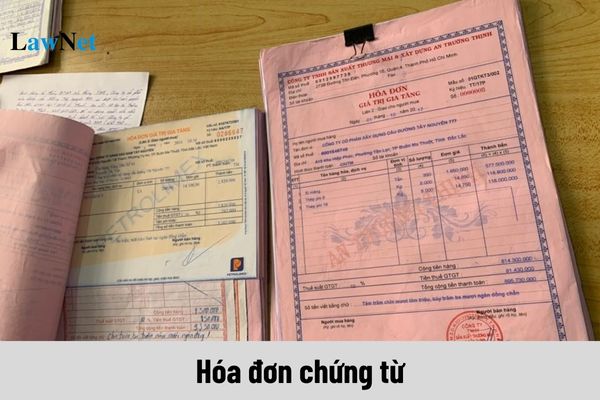What is use of illegal invoices and records? What is illegal use of invoices and records in Vietnam?
What are invoices and records in Vietnam?
(1) What is an invoice?
According to Clauses 1, 2, and 3, Article 3 of Decree 123/2020/ND-CP, an invoice is an accounting record created by organizations or individuals selling goods or providing services that records information on such sales or services. Invoices are presented in one of the following two forms:
- An electronic invoice is an invoice with or without a tax authority’s code presented in electronic data form created by organizations or individuals selling goods or providing services to record such information electronically as per accounting and tax laws. This includes invoices generated from cash registers connected to tax authorities electronically.
- A pre-printed invoice by the tax authority is a paper invoice printed by the tax authority for sale to organizations and individuals eligible to purchase tax authority invoices as stipulated in Article 23 of Decree 123/2020/ND-CP for use when selling goods or providing services.
(2) What is a record?
According to Clauses 4, 5, and 6, Article 3 of Decree 123/2020/ND-CP, records are materials used to record information on deductible taxes, tax collections, fees, and charges that belong to the state budget as stipulated by tax management laws. records as per this Decree include personal income tax withholding slips, tax receipts, and fee receipts presented in either electronic or printed form.
- Electronic records include types of records and receipts specified in Clause 4, Article 3 of Decree 123/2020/ND-CP presented in electronic data form issued by organizations or individuals responsible for withholding taxes to the taxpayers or by tax, fee, or charge-collecting organizations to the taxpayers electronically according to fee, charge, and tax laws.
- Pre-printed or self-printed records include the types of records and receipts specified in Clause 4, Article 3 of Decree 123/2020/ND-CP presented in paper form printed by the tax authority, or tax, fee, or charge-collecting organizations according to a set template for use or self-printed on information technology equipment, cash registers, or other devices for tax deduction, tax, fee, and charge collection as per fee, charge, and tax laws.

What is use of illegal invoices and records? What is illegal use of invoices and records in Vietnam? (Image from the Internet)
What is the use of illegal invoices and records in Vietnam?
Based on Clause 9, Article 3 of the Law on Tax Administration 2019, the use of illegal invoices and records:
- Using fake invoices and records;
- Using invoices and records that have not yet come into effect or have expired;
- Using invoices that have been suspended during the period when compelled by the measure of invoice suspension, except when permitted by a tax authority;
- Using electronic invoices without registration with the tax authority;
- Using electronic invoices without a tax authority’s code in cases where such code is required;
- Using invoices for goods and services dated after the tax authority identifies that the seller is no longer operating at the registered business address;
- Using invoices and records for goods and services dated before the tax authority confirms that the issuer is not operating at the registered business address, or before the tax authority notifies that the issuer is not operating at the registered business address, but concluding, as confirmed by the tax authority or other competent authorities, that such invoices and records are not lawful.
What is the illegal use of invoices and records in Vietnam?
Based on Clause 9, Article 3 of the Law on Tax Administration 2019, the illegal use of invoices and records involves:
- Using invoices and records that do not fully record the required information as stipulated; invoices that are altered or not conformable;
- Using null invoices and records (invoices and records that have recorded criteria and economic transaction details, but the purchase and sale of goods and services are partially or entirely nonexistent);
- Using invoices that do not reflect the actual value or creating fake or false invoices;
- Using invoices with discrepancies in the value of goods and services or inconsistencies in the mandatory fields between the different copies of the invoice;
- Using invoices repeatedly for goods transportation during circulation or utilizing invoices of one type of goods or services to validate another;
- Using invoices and records from other organizations or individuals (except the tax authority’s invoices and cases authorized to create invoices) to validate purchased or sold goods and services;
- Using invoices and records that have been concluded by the tax authority, police, or other competent authorities as illegal.

